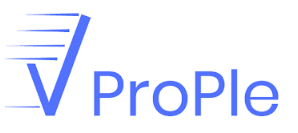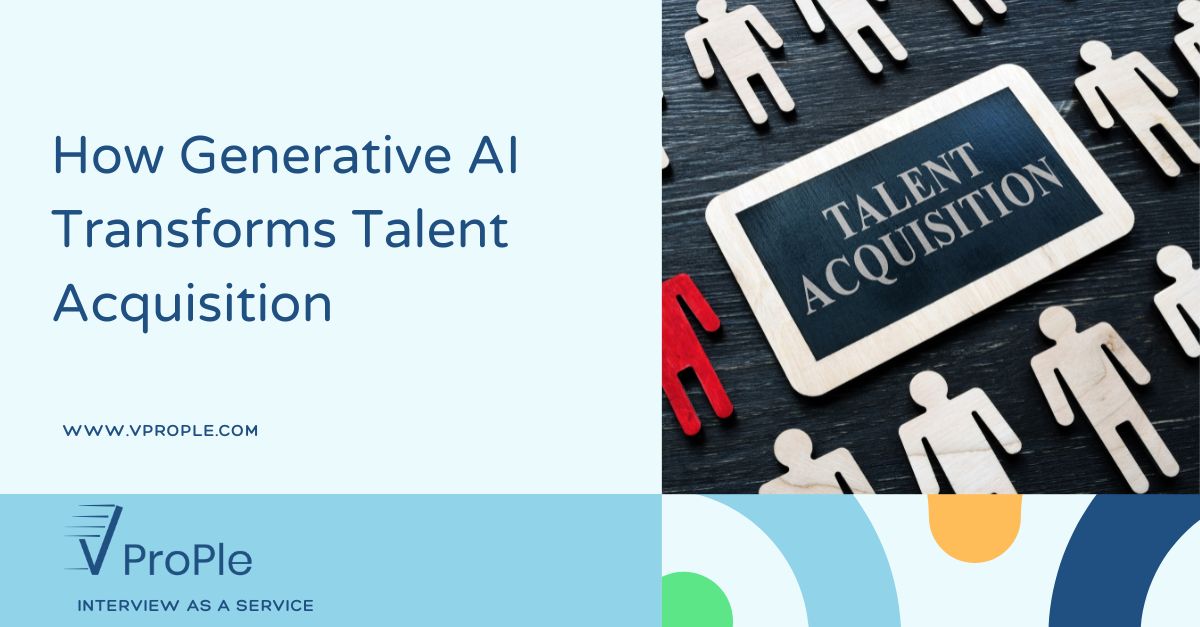Recruiting is one of the most important aspects of any business, whether hiring employees or seeking to grow your client base. Recruiting the right employees takes time, persistence, and skills, Vprople is the interview as a service provider . Not everyone will be happy with the work you’re offering, want to relocate to your location, and be willing to do the job you’re trying to fill.
Recruiting challenges can arise at any point during this process, but many of them can be overcome with little research and insight into what’s causing the issue in the first place. Here are the four most common recruiting challenges and how to overcome them.
1) Finding the best channels for reaching out to qualified candidates
You should consider your company culture, industry, and location to find the best channels for reaching out to qualified candidates. Many factors are involved in determining which channels are the best for hiring eligible candidates.
-
- Know what you want: Before searching, ensure you know what type of person would be a good fit for your organization and role(s). That way, when someone comes along who fits those criteria well, you’ll know it right away!
- Be open-minded: The best candidates sometimes look different from the typical candidates. Don’t let gender, ethnicity, or any other factor keep you from considering someone who might be a fantastic addition to your team!
- Look everywhere: There are so many places where great people can be found – LinkedIn, Twitter, and Facebook groups related to your industry; even going out to meetups in your city can yield some excellent results if you’re willing to put in some effort. Don’t limit yourself based on assumptions about where great talent lives; find it wherever it might be hiding!
- Referrals: Get referrals from current employees and other trusted sources like business partners or other companies in your area who might know people who would be perfect for the job opening at your company too! It never hurts to ask if anyone knows someone who would be great for your team!
4) Using the latest technologies in recruitment
Recruitment is about connecting people with jobs, so it makes sense to use the latest technologies.
The best way to use technology in recruitment is by automating everything that can be automated. If your recruitment software allows you to send personalized messages based on candidates’ responses, then do it! If your applicant tracking system lets you know when a candidate has viewed your job posting, send them an email thanking them for their interest! The more personal you can make your communications, the better!
Another great way to use technology in recruitment is by using video interviewing services like Skype or Google Hangouts instead of having people come into an office for an interview. Not only does this save you time and money because you don’t need to pay for travel expenses, but it also allows candidates who might live far away from your office area to apply for open positions without worrying about whether or not they’ll be able to make it into town for an interview at a specific date and time—plus, candidates love being able to see who they’re talking to during an interview because it helps put them at ease!
Lastly, another great thing about using technology in recruitment is that it opens up opportunities for hiring remote workers worldwide! If you’ve always wanted to hire people from different countries but haven’t been able to because of logistics issues related to where people are located vs. where your offices are located, then hiring remote workers who work online would be perfect for you because there’s no distance between where they live and where they work—as long as they have reliable internet access and can speak English well enough to communicate effectively with your team (or another language if yours isn’t English), then they’re eligible to apply!
Conclusion
Recruiting talent can be difficult, but it doesn’t have to be. This blog post covered the most common recruiting challenges and how to overcome them. These tips will help you find and recruit qualified candidates for your open positions. One of the best ways to overcome these challenges is by getting an Interview as a service. It is an interview coaching service that will help you get ahead of your competition in the hiring process.
-
- Use an applicant tracking system (ATS) to manage all applicants so that no one falls through the cracks because they didn’t follow directions correctly or were missing information;
- Ensure that all hiring managers are adhering to hiring criteria by reviewing their decisions against what’s listed in the job description; this will help ensure consistency across departments.
- Keep track of how long it takes for each stage in the hiring process so that you can see which strategies need improvement (i.e., if it takes too long to get through interviews, then maybe those questions aren’t relevant anymore).
- Monitor employee retention rates by role over time so you know when there might be problems with specific teams or managers and can take action before things get out of hand.
- Track employee satisfaction rates after hires have been made so you know if there are any red flags indicating potential issues with onboarding or culture fit; this way, you’ll be able to address any concerns early on before they become more significant problems down the road!
3) Recruiting fast
Recruiting fast and with fair means is extremely important for any organization. An excellent technical interview service can help you recruit fast and fair. Here are three practical ways to recruit fast:
-
- Know what you want: Before searching, ensure you know what type of person would be a good fit for your organization and role(s). That way, when someone comes along who fits those criteria well, you’ll know it right away!
- Be open-minded: The best candidates sometimes look different from the typical candidates. Don’t let gender, ethnicity, or any other factor keep you from considering someone who might be a fantastic addition to your team!
- Look everywhere: There are so many places where great people can be found – LinkedIn, Twitter, and Facebook groups related to your industry; even going out to meetups in your city can yield some excellent results if you’re willing to put in some effort. Don’t limit yourself based on assumptions about where great talent lives; find it wherever it might be hiding!
- Referrals: Get referrals from current employees and other trusted sources like business partners or other companies in your area who might know people who would be perfect for the job opening at your company too! It never hurts to ask if anyone knows someone who would be great for your team!
4) Using the latest technologies in recruitment
Recruitment is about connecting people with jobs, so it makes sense to use the latest technologies.
The best way to use technology in recruitment is by automating everything that can be automated. If your recruitment software allows you to send personalized messages based on candidates’ responses, then do it! If your applicant tracking system lets you know when a candidate has viewed your job posting, send them an email thanking them for their interest! The more personal you can make your communications, the better!
Another great way to use technology in recruitment is by using video interviewing services like Skype or Google Hangouts instead of having people come into an office for an interview. Not only does this save you time and money because you don’t need to pay for travel expenses, but it also allows candidates who might live far away from your office area to apply for open positions without worrying about whether or not they’ll be able to make it into town for an interview at a specific date and time—plus, candidates love being able to see who they’re talking to during an interview because it helps put them at ease!
Lastly, another great thing about using technology in recruitment is that it opens up opportunities for hiring remote workers worldwide! If you’ve always wanted to hire people from different countries but haven’t been able to because of logistics issues related to where people are located vs. where your offices are located, then hiring remote workers who work online would be perfect for you because there’s no distance between where they live and where they work—as long as they have reliable internet access and can speak English well enough to communicate effectively with your team (or another language if yours isn’t English), then they’re eligible to apply!
Conclusion
Recruiting talent can be difficult, but it doesn’t have to be. This blog post covered the most common recruiting challenges and how to overcome them. These tips will help you find and recruit qualified candidates for your open positions. One of the best ways to overcome these challenges is by getting an Interview as a service. It is an interview coaching service that will help you get ahead of your competition in the hiring process.
-
- Use LinkedIn. LinkedIn is a great place to find experienced people looking for jobs, so make sure that your company profile is up-to-date and that you’re engaging with people regularly.
- Use Twitter Search. Twitter search allows you to find people based on keywords in their bio or tweets; if someone mentions being interested in a role like yours, then reach out and offer some information about your company!
- Use Inmail on LinkedIn. InMail is LinkedIn’s premium service that allows you to send personalized messages to people based on what they’ve shared in their profile; use this to find people looking for jobs similar to yours and invite them to connect so you can learn more about their skillset!
- Get referrals from current employees, vendors, partners, etc., and people inside your network who know other like-minded people outside your network who would be great additions to your team!
2) Using data-driven recruitment
Data-driven recruitment uses data analysis to find the best possible candidates for open positions within your organization. This involves analyzing metrics like hiring time, employee turnover rate, and candidate quality over time to determine the most important factors when hiring someone for a job.
Once these factors have been determined, you can use them as metrics when evaluating whether or not a candidate meets the requirements for the position. For example, if one of the top factors when hiring someone for a job is how long they’ve been in the industry, then when looking through resumes or interviewing candidates, you would want to pay close attention to how long each person has been working in that field because it will indicate whether or not they would be able to perform well at this job.
Here are some ways that you can use data-driven recruitment in your company:
-
- Use an applicant tracking system (ATS) to manage all applicants so that no one falls through the cracks because they didn’t follow directions correctly or were missing information;
- Ensure that all hiring managers are adhering to hiring criteria by reviewing their decisions against what’s listed in the job description; this will help ensure consistency across departments.
- Keep track of how long it takes for each stage in the hiring process so that you can see which strategies need improvement (i.e., if it takes too long to get through interviews, then maybe those questions aren’t relevant anymore).
- Monitor employee retention rates by role over time so you know when there might be problems with specific teams or managers and can take action before things get out of hand.
- Track employee satisfaction rates after hires have been made so you know if there are any red flags indicating potential issues with onboarding or culture fit; this way, you’ll be able to address any concerns early on before they become more significant problems down the road!
3) Recruiting fast
Recruiting fast and with fair means is extremely important for any organization. An excellent technical interview service can help you recruit fast and fair. Here are three practical ways to recruit fast:
-
- Know what you want: Before searching, ensure you know what type of person would be a good fit for your organization and role(s). That way, when someone comes along who fits those criteria well, you’ll know it right away!
- Be open-minded: The best candidates sometimes look different from the typical candidates. Don’t let gender, ethnicity, or any other factor keep you from considering someone who might be a fantastic addition to your team!
- Look everywhere: There are so many places where great people can be found – LinkedIn, Twitter, and Facebook groups related to your industry; even going out to meetups in your city can yield some excellent results if you’re willing to put in some effort. Don’t limit yourself based on assumptions about where great talent lives; find it wherever it might be hiding!
- Referrals: Get referrals from current employees and other trusted sources like business partners or other companies in your area who might know people who would be perfect for the job opening at your company too! It never hurts to ask if anyone knows someone who would be great for your team!
4) Using the latest technologies in recruitment
Recruitment is about connecting people with jobs, so it makes sense to use the latest technologies.
The best way to use technology in recruitment is by automating everything that can be automated. If your recruitment software allows you to send personalized messages based on candidates’ responses, then do it! If your applicant tracking system lets you know when a candidate has viewed your job posting, send them an email thanking them for their interest! The more personal you can make your communications, the better!
Another great way to use technology in recruitment is by using video interviewing services like Skype or Google Hangouts instead of having people come into an office for an interview. Not only does this save you time and money because you don’t need to pay for travel expenses, but it also allows candidates who might live far away from your office area to apply for open positions without worrying about whether or not they’ll be able to make it into town for an interview at a specific date and time—plus, candidates love being able to see who they’re talking to during an interview because it helps put them at ease!
Lastly, another great thing about using technology in recruitment is that it opens up opportunities for hiring remote workers worldwide! If you’ve always wanted to hire people from different countries but haven’t been able to because of logistics issues related to where people are located vs. where your offices are located, then hiring remote workers who work online would be perfect for you because there’s no distance between where they live and where they work—as long as they have reliable internet access and can speak English well enough to communicate effectively with your team (or another language if yours isn’t English), then they’re eligible to apply!
Conclusion
Recruiting talent can be difficult, but it doesn’t have to be. This blog post covered the most common recruiting challenges and how to overcome them. These tips will help you find and recruit qualified candidates for your open positions. One of the best ways to overcome these challenges is by getting an Interview as a service. It is an interview coaching service that will help you get ahead of your competition in the hiring process.
-
- First, it depends on your budget and the ROI you’re looking for.
- Second, it depends on your audience’s preferences. If they’re not using specific platforms, they won’t be as effective for hiring quality candidates!
- Finally, it depends on your hiring needs.
Have a look at some tips:
-
- Use LinkedIn. LinkedIn is a great place to find experienced people looking for jobs, so make sure that your company profile is up-to-date and that you’re engaging with people regularly.
- Use Twitter Search. Twitter search allows you to find people based on keywords in their bio or tweets; if someone mentions being interested in a role like yours, then reach out and offer some information about your company!
- Use Inmail on LinkedIn. InMail is LinkedIn’s premium service that allows you to send personalized messages to people based on what they’ve shared in their profile; use this to find people looking for jobs similar to yours and invite them to connect so you can learn more about their skillset!
- Get referrals from current employees, vendors, partners, etc., and people inside your network who know other like-minded people outside your network who would be great additions to your team!
2) Using data-driven recruitment
Data-driven recruitment uses data analysis to find the best possible candidates for open positions within your organization. This involves analyzing metrics like hiring time, employee turnover rate, and candidate quality over time to determine the most important factors when hiring someone for a job.
Once these factors have been determined, you can use them as metrics when evaluating whether or not a candidate meets the requirements for the position. For example, if one of the top factors when hiring someone for a job is how long they’ve been in the industry, then when looking through resumes or interviewing candidates, you would want to pay close attention to how long each person has been working in that field because it will indicate whether or not they would be able to perform well at this job.
Here are some ways that you can use data-driven recruitment in your company:
-
- Use an applicant tracking system (ATS) to manage all applicants so that no one falls through the cracks because they didn’t follow directions correctly or were missing information;
- Ensure that all hiring managers are adhering to hiring criteria by reviewing their decisions against what’s listed in the job description; this will help ensure consistency across departments.
- Keep track of how long it takes for each stage in the hiring process so that you can see which strategies need improvement (i.e., if it takes too long to get through interviews, then maybe those questions aren’t relevant anymore).
- Monitor employee retention rates by role over time so you know when there might be problems with specific teams or managers and can take action before things get out of hand.
- Track employee satisfaction rates after hires have been made so you know if there are any red flags indicating potential issues with onboarding or culture fit; this way, you’ll be able to address any concerns early on before they become more significant problems down the road!
3) Recruiting fast
Recruiting fast and with fair means is extremely important for any organization. An excellent technical interview service can help you recruit fast and fair. Here are three practical ways to recruit fast:
-
- Know what you want: Before searching, ensure you know what type of person would be a good fit for your organization and role(s). That way, when someone comes along who fits those criteria well, you’ll know it right away!
- Be open-minded: The best candidates sometimes look different from the typical candidates. Don’t let gender, ethnicity, or any other factor keep you from considering someone who might be a fantastic addition to your team!
- Look everywhere: There are so many places where great people can be found – LinkedIn, Twitter, and Facebook groups related to your industry; even going out to meetups in your city can yield some excellent results if you’re willing to put in some effort. Don’t limit yourself based on assumptions about where great talent lives; find it wherever it might be hiding!
- Referrals: Get referrals from current employees and other trusted sources like business partners or other companies in your area who might know people who would be perfect for the job opening at your company too! It never hurts to ask if anyone knows someone who would be great for your team!
4) Using the latest technologies in recruitment
Recruitment is about connecting people with jobs, so it makes sense to use the latest technologies.
The best way to use technology in recruitment is by automating everything that can be automated. If your recruitment software allows you to send personalized messages based on candidates’ responses, then do it! If your applicant tracking system lets you know when a candidate has viewed your job posting, send them an email thanking them for their interest! The more personal you can make your communications, the better!
Another great way to use technology in recruitment is by using video interviewing services like Skype or Google Hangouts instead of having people come into an office for an interview. Not only does this save you time and money because you don’t need to pay for travel expenses, but it also allows candidates who might live far away from your office area to apply for open positions without worrying about whether or not they’ll be able to make it into town for an interview at a specific date and time—plus, candidates love being able to see who they’re talking to during an interview because it helps put them at ease!
Lastly, another great thing about using technology in recruitment is that it opens up opportunities for hiring remote workers worldwide! If you’ve always wanted to hire people from different countries but haven’t been able to because of logistics issues related to where people are located vs. where your offices are located, then hiring remote workers who work online would be perfect for you because there’s no distance between where they live and where they work—as long as they have reliable internet access and can speak English well enough to communicate effectively with your team (or another language if yours isn’t English), then they’re eligible to apply!
Conclusion
Recruiting talent can be difficult, but it doesn’t have to be. This blog post covered the most common recruiting challenges and how to overcome them. These tips will help you find and recruit qualified candidates for your open positions. One of the best ways to overcome these challenges is by getting an Interview as a service. It is an interview coaching service that will help you get ahead of your competition in the hiring process.






